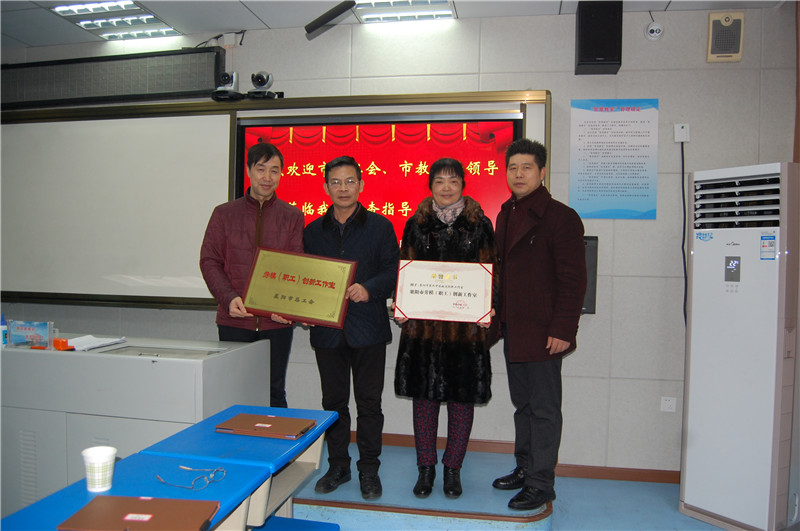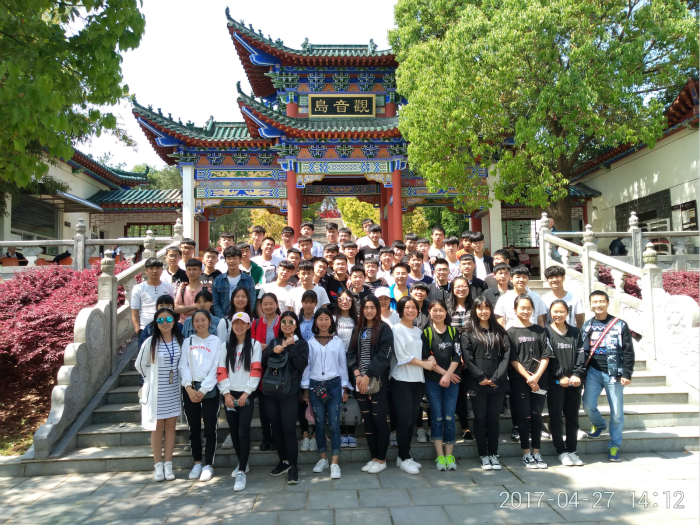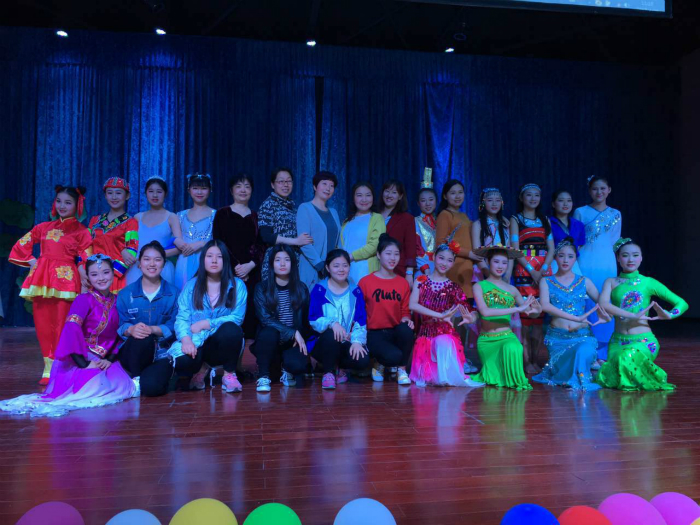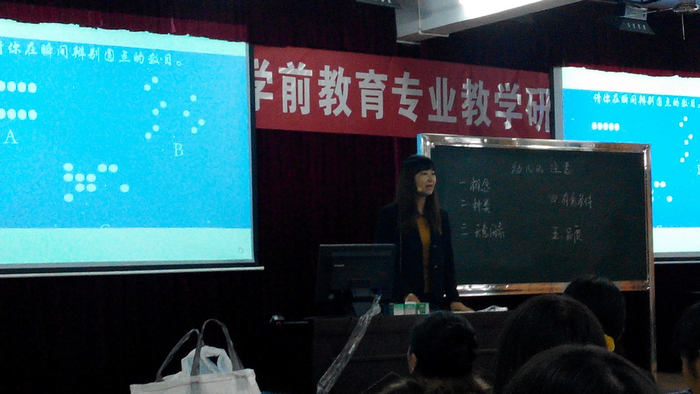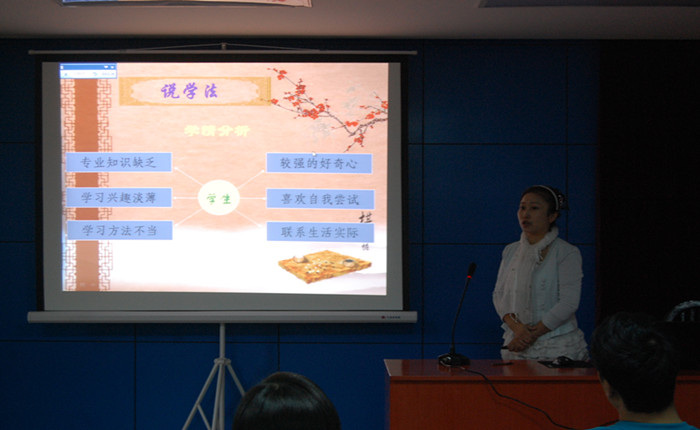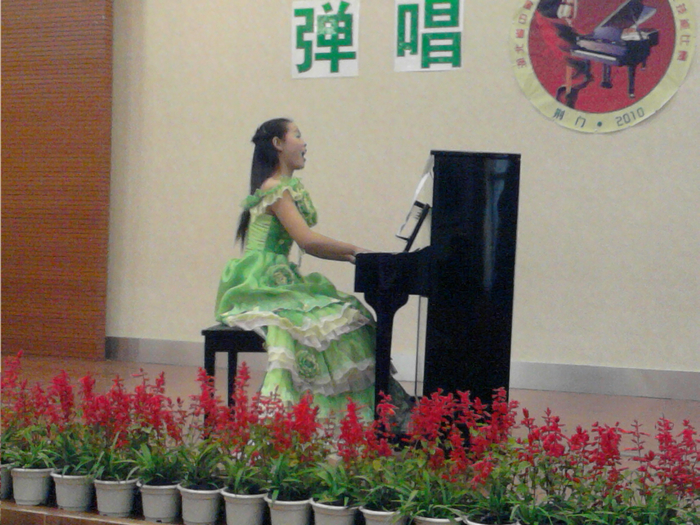2009年10月30日
10月28日,襄樊九中英语教师孟萍在襄樊市高中英语演讲比赛中获一等奖。演讲的题目是:《Have you noticed?It's culture》。
Have you noticed? It’s culture!
Good afternoon, ladies and gentlemen! I am so glad that I have a chance to make a speech here. My topic is “Have you noticed? It’s culture!”. Why have I chosen this title? At first, let’s have a test of your cultural awareness.
Task1: How much do you know about Qi Baishi, Yang Liwei, Yuan Longping, Yao Ming and the West Lake? Task2: How much do you know about Steven Spielberg, Noah Webster, Harry Potter and the Big Ben? Task3: How much do you know about World War Two?
Yes, I’m sure all of us know the words clearly. However, they are not only words with concrete meanings but also reflecting some other information. What is it? Have you noticed? If not, let’s reach the answer together.
Robertson once said,” Culture consists of all the shared products of human society.” What does he mean by culture? Does he mean culture in the sense of sophisticated taste in literature,music,art,etc.? It is an ordinary understanding. Here we have a much broader meaning. Our term culture refers to the total pattern of beliefs, customs, institutions, objects and techniques that characterize the life of a human community. This means not only such material things as cities, organizations and schools, but also non-material things, such as ideas, customs, family patterns and language. Put it simply, culture refers to the entire way of life of a society, “the way of a people”.
Culture is a rather abstract term which refers much. But it is clear that language is a part, an indispensable part, of culture, and plays a very important role in it. Without language, culture would not be possible. On the other hand, language is influenced and shaped by culture; it reflects culture. In the broadest sense, language is the symbolic representation of a people, and it also reflects their historical and cultural backgrounds as well as their approach to life and their ways of living and thinking. Here, what we need to stress is the two interact, and that understanding of one requires understanding of the other.
There are plenty of kinds of languages in the world. So are cultures. Thus, cultures differ from one another, and each culture is unique. As cultures are diverse, so languages are diverse. Although we have learnt English for more than ten years, it is still difficult to communicate with the foreigners, even to understand them sometimes. Why? It is only natural that with differences in cultures and differences in languages, difficulties often arise in communicating between cultures and across cultures. There are so many such differences between Chinese and native speakers of English. So learning it well is not always easy.
Culture is everywhere in our English learning.
First, for words, we often tell the students,” careful with words”. “Careful with fire,” is good advice, we know; “careful with words” is ten times doubly so. Because of the different cultures, it is not easy for the students to remember them, not to say, to use them correctly. Can we always rely on our dictionary to give us the proper English for a Chinese term, or the proper Chinese for an English word? No! Numerous examples can be found to support my point of view. I will take the familiar word “dragon” for example. Dragons are magical creatures in both China and the west. But there are two significant differences. The first is their appearance: the form of the Chinese dragon is familiar to everyone. It’s shaped somewhat like a snake with claws. However, the western dragon looks like a dinosaur. More importantly, their difference lies in their different associations. The Chinese dragon is associated with good things, such as luck, happiness and royal power. In one word, dragons in China are always with positive associations. But in the west, it is quite different. It’s a symbol of evil. For grammar, it is the same. We always say, “ 你在做什么?”, which is “ What are you doing?” in English. Western people would like to express their ideas and thoughts directly, so they put “what” at the beginning. English-speaking people address others by using the first name, such as Tom, Jane, etc. This applies not only to people of the same age, but also of different ages. But in China, it is impolite. Family name is always regarded more important. It is also because of culture. Chinese people emphasis the group, while westerns individual.
Secondly, reading is a branch of English learning. If one doesn’t know the cultural background, it is more difficult for him or her to understand the passage. For example, for Unit 1 Anne’s Best Friend in Book1, it refers to WWII. It’s certain that everyone present knows it and can comprehend the text and the dangerous situation of Anne easily. But in the classroom, the students don’t. So it’s no doubt they can’t feel the same feelings as Anne and the eagerness to nature. Because the test is necessary and the passages mostly come from the west, the learning of culture is also necessary.
The following is in writing. Why is it that the English writings of Chinese students read so much like translation of Chinese? Why is it that one can easily tell whether an article is written by a Chinese or by a native speaker of English? Is it because most Chinese students have not yet mastered the language? Is it because most Chinese and westerners think differently? Is it because of differences in Chinese and English writing styles? The answers to all of the last three questions are “yes”. The writings express the thoughts of the writers. The ideas and thoughts are shaped by what people do and see around them. That’s to say, to some extent, they are shaped by the writers’ culture. Chinese students always try to use too many adjectives, some called clichés, moderate tone, while English writings prefer simple, direct, original and sharp language. If one’s ideas want to be expressed as the native speakers do, not chinglish, culture learning is necessary and important.
The last but not least is for communication. English has been taught in China for more than 30 years. With the growing rate of globalization, the significance of the language has become more and more prominent. To learn a foreign language not only needs us to be able to read and write but also to speak, which is the most important, for English is a kind of language. Cultural differences in everyday conversations are quite easy to find. Because of cultural differences, misunderstanding may arise; because of cultural differences, a serious question may cause amusement or laughter; because of cultural differences, jokes by foreign speakers may be received with blank faces and stony silence…What’s more, in our every test, it’s not hard to find that more and more situations appear in the form of communication in the real life. If the students don’t know the cultural background, they are likely to give the wrong answers.
It’s obvious that we need changes now. Grammar and vocabulary were the focuses of learning in the early days. Later, more emphasis was put on developing the language skills. More recently, growing numbers of people have realized that learning the language itself only enables themselves to use the language correctly. But it’s not enough. At the same time, to be appropriate should not be neglected.
All of us, as teachers, are teaching the English language. How can we teach the language without teaching the context in which it is spoken?
Now let’s see the words again. Have you noticed? They are not simple words. It’s culture.
That’s all. Thank you for your listening!
